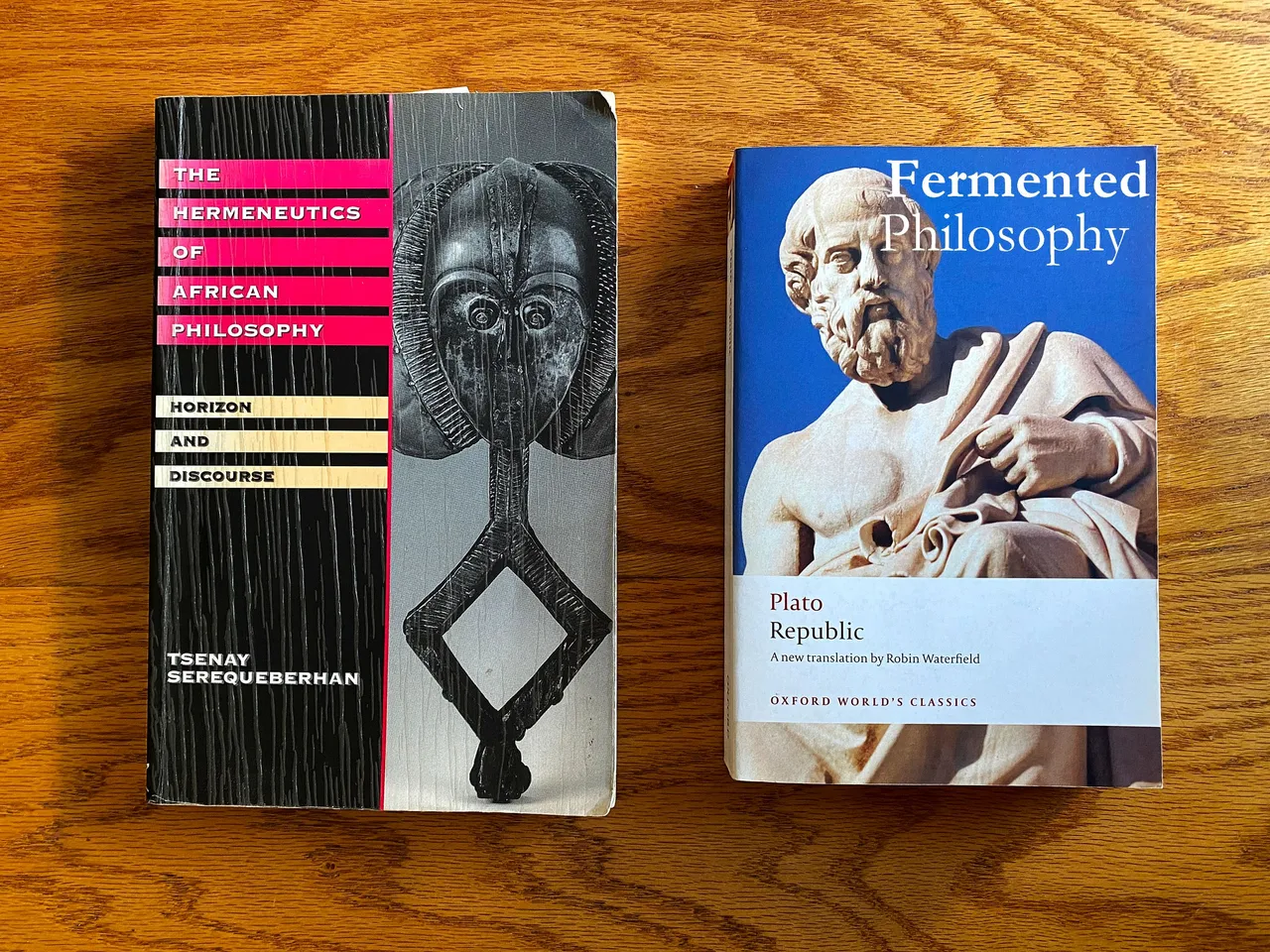
A Tactical Recap to the Fermented Ph.D. Dump
How should different philosophical traditions converse with each other? Or more concretely, how should philosophers from different philosophical traditions talk to each other, especially when different conceptions and languages are used in their respective philosophies? This is, in part, the problem that intercultural philosophy and philosophers sit with. In this post or Ph.D. African dump, I want to briefly introduce two very important tenets that intercultural philosophy rejects so as to open a space for philosophizing from a de-hegemonized place.
Important Intercultural Philosophy Tenets
There are some important tenets that intercultural (and by implication comparative philosophy) accept and actively promote. These tenets are linked to some of the problems mentioned in the first questions this post opened with.
Philosophia Perennis or Metaphysical Sameness
The first potential problem with conversing between philosophies of different traditions is the notion of philosophia perennis or metaphysical sameness. The problem, in short, is that Western philosophy accepts the notion that all concepts are essentially the same, hence the idea of metaphysical sameness. All philosophical traditions, when this idea is accepted, essentially talk about the same things, the same concepts, the same ideas, but languages are different and hence the quasi-differences we see in the world and philosophies. But the thing behind these differences is the same. Ubuntu is basically, for example, altruism just in a different guise, or altruism is basically ubuntu, and so on. But this is only from, for example, a Western perspective. It is not accepted, for example, by intercultural philosophy. Because intercultural philosophy rejects the idea of philosophia perennis or metaphysical sameness because it might still harbor an essentialist perspective or it might still hold the status quo in place. In short, it does not de-hegemonize philosophies; altruism is still held as the base to which ubuntu, for example, should strive.
Incommensurability
The second problem follows from the first: if there is no philosophia perennis or metaphysical sameness, what is a common measure we can use to judge or compare the conversation with? Or, what common measure is there to understand these philosophies? Again, from a Western perspective, there is a problem of commensurability, namely, incommensurability. However, intercultural rejects this notion, that there are no common measures in which we can converse. There are thus common measures we can use without the slippery slope into metaphysical sameness or essentialism. That is, one might profess that if there are common measures, essentialism and sameness again becomes a problem. However, the premise from which we are working is already a de-hegemonized one, namely, there is no single true idea of, for example, philosophy or its concepts.

Opening the Space to Philosophize from this De-hegemonized Place
In various of the previous dumps, I have introduced the notions of place and space, of philosophical place and philosophical space. Without going into too much detail again, the philosophical place is reserved for the idea that philosophies are always already a response by concretely embedded philosophers to the particular place's historic-socio-economic-political factors. Philosophical space, on the other hand, is an abstract space reserved for different philosophical places to meet up and converse in.
Now, the importance of these rejected tenets can be seen. Philosophical space is an abstract space in which philosophical places can meet up and converse, (i) without the tension that philosophia perennis or metaphysical sameness causes, and (ii) without the problem of incommensurability. In short, due to intercultural philosophers rejecting these tenets, philosophers can compare and converse about their philosophies in the abstract space because it accepts that different philosophical places have different philosophies and that one can indeed converse about and compare these different philosophies.
Language and the Philosophical Space
How should these conversations of comparisons ensue? There are various ways in which it can happen. The main methods of intercultural philosophy are dialogue and polylogue. However, African philosophers have been working on a unique method they have subsequently dubbed conversationalism. But all of this links back to the language in philosophical space. I say this because language itself is never neutral. Choosing which language to use is itself a political statement and can in some sense limit the conversation. Intercultural philosophers reject the tenet of incommensurability but they do accept the notion that there is not and cannot be a one-to-one translation of ideas and concepts.
In future posts, I will introduce the idea of comparative philosophy and conversationalism itself to color this idea in a bit. For now, language only seems to be a problem as soon as one again hegemonizes it. Dialogue and polylogue are in some sense still plagued by this problem. But conversationalism (and to some degree comparative philosophy) does not fall prey to this problem. I will discuss this in more detail in the ensuing posts.
Postscriptum
I hope that you learned something from this post. It can be a bit convoluted at times but the general idea is really simple. In the posts to follow, I will discuss the methods a bit more and I will return to these ideas again.
For now, happy learning and stay well!
All of the work dealt with is my own, but obviously, some individual authors such as Jonathan Chimakonam are part of my inspiration. The photographs are also my own, taken with my iPhone.